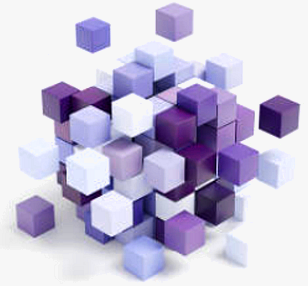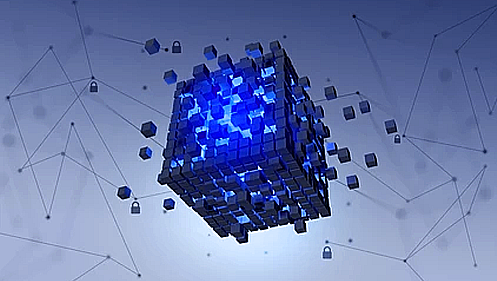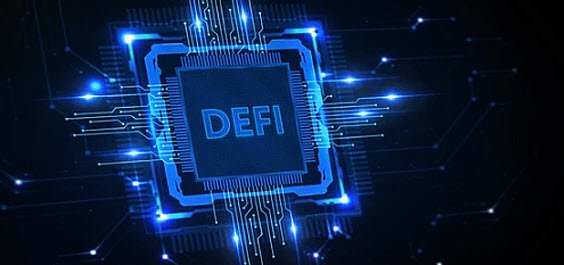Accredited InvestorsAltcoinAnatoli UnitskyAnti-Money Laundering (AML) In CryptoAPIArbitrageArtCoin TokenArticle DirectoryASICAuction Terminology GlossaryBasics of Stock Market InvestingBear MarketBest Crypto Payment Provider In the WorldBitcoinBlockchainBlockchain ConfirmationBlockchain Consensus MechanismBlockchain ForkBlockchain GlossaryBored Ape Yacht ClubBuild a Business That OutperformsBull MarketBuying SkyWay SharesByzantine Fault Tolerance (BFT) ExplainedCasascius CoinCentral Bank Digital Currency (CBDC)Centralized Crypto ExchangeCoinCoinsetCold WalletCollateralCommodity Futures Trading Commission (CFTC)Cross-Chain TechnologyCRUCrypto ExchangeCrypto GlossaryCrypto JokesCrypto Terms to KnowCrypto TickerCryptocurrencyCryptographyCryptojackingCryptounit BlockchainCryptounit GlossaryCryptounit ProgramdApp (Decentralized Application)Dead CoinDecentralized Exchange (DEX)Decentralized Finance (DeFi)Difference Between Bitcoin and EthereumDifferent Ways of Investing MoneyDigital CurrencyDistributed LedgerDo Your Own Research (DYOR)Dollar Cost Averaging (DCA)Dow Jones Industrial Average (DJIA)EncryptionERC-20ERC-721EthereumEvoScentFear Of Missing Out (FOMO)Fear, Uncertainty and Doubt (FUD)Fiat MoneyFNT Fintech CompanyGenesis BlockGlobal Unit PayGlossary of Banking TermsGlossary of Business TermsGlossary of Financial TermsHalvingHODLHot WalletHow Do I Start InvestingHow Rich is Satoshi Nakamoto?How to Create a BlockchainHow to Find Private InvestorsHow to Get Into FintechHow to Program Smart ContractsI Am Thrilled to Be a Part of This Global ProjectInitial Coin Offering (ICO)Initial Public Offering (IPO)Initial Token Offering (ITO)Innovation Basalt TechnologyInnovative Transportation TechnologiesInternational Bank Account Number (IBAN)Investing in Gold Mining StocksInvesting in Gold MiningJagerJoy of Missing Out (JOMO)Know Your Customer (KYC)LedgerLiquidity in CryptocurrencyMaker and Taker Fees in Crypto TradingMarket Capitalization (Market Cap)Meme CoinMetal Credit CardMetaMaskMillenials Now Have Access to Generational WealthMy Best Investment EverNew Digital EvolutionNFT GlossaryOff-Chain TransactionsOn-Chain TransactionsOpen Edition NFTPeer-to-Peer (P2P)Personal Loan GlossaryProbably the Best STO on the MarketProof of Stake (PoS)Real Estate Glossary of TermsReal Estate Investing GlossaryRebase TokenSecurities and Exchange Commission (SEC)Security Token ExchangesSecurity Token Offering (STO)Soulbound Decentralized Identities for Security TokensSoulbound ID Launch by Stobox Proves a SuccessSoulbound TokensStoboxStock Market GlossaryTestimonialsTether Platform and Token (USDT)UnitEx ExchangeUnitsky String TechnologiesUNTBUSDUValidatorWe Started Investing When We Were 25What are Blue Chip NFT?What are Blue Chip Stocks?What are Crypto Assets?What are Crypto Smart Contracts?What are CryptoPunks NFT?What are Digital Assets?What are Digital Collectibles?What are Gas Fees?What are Gas Wars?What are Hashmasks?What are Non Fungible Tokens?What are Non-Sufficient Funds (NSF)?What are Soulbound Tokens (SBT)?What are Stablecoins in Crypto?What are Transactions Per Second (TPS)?What are Utility NFTs?What are Utility Tokens?What Does Burning Crypto Mean?What Does Diamond Hands Mean?What Does Paper Hands Mean?What Does To The Moon Mean?What Does WAGMI Mean?What Happened to Satoshi Nakamoto?What is a 51% Attack?What is a Baby Boomer?What is a Backlink?What is a Banner?What is a Barcode?What is a Bid-Ask Spread in Crypto?What is a Block in Blockchain?What is a Block Reward?What is a Blockchain Address?What is a Blockchain Node?What is a Blockchain Oracle?What is a Blog?What is a Bond?What is a Bot?What is a Broker?What is a Business Accelerator?What is a Cash Cow?What is a Commercial Bank?What is a Commodity?What is a Con?What is a Credit?What is a Credit Limit?What is a Credit Rating?What is a Crypto Airdrop?What is a Crypto Bridge?What is a Crypto Scam?What is a Crypto Token?What is a Crypto Wallet?What is a Crypto Whale?What is a Crypto Winter?What is a Cryptocurrency Public Ledger?What is a Cryptocurrency Roadmap?What is a DAO?What is a Dark Pool?What is a Day Trader?What is a Dead Cat Bounce?What is a Default?What is a Derivative?What is a Digital Credit Card?What is a Fiscal Quarter?What is a Fungible Token?What is a Governance Token?What is a Grace Period?What is a Hard Fork?What is a Hot Wallet?What is a Hybrid Blockchain?What is a Hybrid PoW/PoS?What is a Joint Account?What is a Market Cap?What is a Merkle Tree in Blockchain?What is a Mining Farm?What is a Nonce? What is a PFP NFT?What is a POS System?What is a Prepaid Card?What is a Private Blockchain?What is a Private Key?What is a Public Blockchain?What is a Public Key?What is a Reserve Currency?What is a Ring Signature?What is a Routing Number?What is a Rug Pull in Crypto?What is a Safe Deposit Box?What is a Satoshi?What is a Security Token?What is a Seed Phrase?What is a Shitcoin?What is a Sidechain?What is a Soft Fork?What is a Spot Market?What is a State Bank?What is a SWIFT Code?What is a Tax Identification Number (TIN)?What is a Time Deposit?What is a Transaction Account?What is a Variable Interest Rate?What is a Virtual Assistant (VA)?What is a Virtual Card?What is a Virtual Currency?What is a Visa Card?What is a Whitelist in Crypto?What is a Whitepaper?What is Accounts Payable (AP)?What is AMA in Crypto?What is Amortization?What is an Accrual?What is an ACH Transfer?What is an Actuary?What is an Addendum?What is an Algorithm?What is an Angel Investor?What is an Annuity?What is an Asset?What is an ATM?What is an Atomic Swap?What is an Audit?What is an Avatar?What is an EIN?What is an Embargo?What is an Entrepreneur?What is an IDO (Initial Dex Offering)?What is an Interest Rate?What is an Internet cookie?What is an Investment Bank?What is an NFT Drop?What is an NFT Floor Price?What is an Ommer Block?What is an Orphan Block?What is an Outstanding Check?What is an Overdraft?What is Artificial Intelligence (AI)?What is B2B (Business-to-Business)?What is B2G (Business-to-Government)?What is Bartering?What is Bitcoin Dominance?What is Bitcoin Pizza Day?What is Blockchain Immutability?What is Blockchain Used For?What is BRICS?What is Business-to-Consumer (B2C)?What is C2C (Customer to Customer)?What is Capitalism?What is Catfishing?What is CFD Trading?What is Check Kiting?What is Cloud Mining?What is Communism?What is Content Marketing?What is Decentralization in Blockchain?What is DeFi in Crypto?What is Delisting?What is Depreciation?What is Digital Marketing?What is Diversification?What is Double Spending?What is Dumb Money?What is Dumping?What is Earnings Per Share (EPS)?What is Economics?What is Email Marketing?What is Equity?What is Etherscan?What is Fintech?What is Foreign currency?What is Forex?What is Fundamental Analysis (FA)?What is GameFi?What is Generative Art NFT?What is Gwei?What is Hard Currency?What is Hash Rate?What is Hashing in Blockchain?What is Inflation?What is Initial Game Offering (IGO)?What is Interest?What is Interest Income?What is Mainnet?What is Mastercard?What is Metaverse in Crypto?What is Mining in Cryptocurrency?What is Minting NFT?What is Mobile Banking?What is Money Laundering?What is NFT Alpha?What is NFT Metadata?What is NFT Rarity?What is NGMI Meaning?What is Nominal Interest Rate?What is Online Banking?What is Open-End Credit?What is OpenSea NFT Marketplace?What is Personal Identification Number (PIN)?What is Play-to-Earn?What is Polygon?What is Proof of Authority (PoA)?What is Proof of Work (PoW)?What is Public Key Cryptography?What is Pump and Dump?What is Quantum Computing?What is Refinancing?What is Retail Banking?What is Ripple?What is Sharding?What is Slippage in Crypto?What is Smart Money?What is Solvency?What is Soulbound ID?What is SSL?What is Staking in Cryptocurrency?What is Technical Analysis (TA)?What is Testnet?What is the Ask Price?What is the Better Business Bureau (BBB)?What is the Bid Price?What is the Dark Web?What is the InterPlanetary File System (IPFS)?What is the Gold Standard?What is the Lightning Network?What is the Prime Rate?What is the Sandbox?What is the Secondary Market?What is the World Bank?What is Tier 1 Capital?What is Tokenomics?What is TRC-20?What is Universal Banking?What is Unspent Transaction Output (UTXO)?What is Usury?What is Volatility in Crypto?What is Wash Trading?What is Web3?What is Whisper?What is XRP?What is Zero-Knowledge Proof (ZKP)?Who is Beeple?Who is Satoshi Nakamoto?Who is Vitalik Buterin?Why Tokenization is a Safe HavenWhy You Should Try Your Hand at Trading
What is Decentralization in Blockchain?
- Home
- Blockchain Glossary
- What is Decentralization in Blockchain?
Many investors consider decentralization to be a fundamental characteristic of all cryptocurrencies. It's worth noting that Bitcoin's success as the safest, most reliable, and in-demand currency can be attributed to its decentralized nature.

Despite this, only a small fraction of the population currently comprehends the concept of decentralization, its core features, and the advantages it offers.
What is Decentralization in Blockchain?
Decentralization is a key concept in the world of blockchain technology. It is what sets blockchain apart from traditional centralized systems, and has led to the creation of cryptocurrencies such as Bitcoin and Ethereum. But what exactly is decentralization, and why is it so important in the blockchain space?
At its core, decentralization means that there is no central authority or single point of control. In a decentralized system, power is distributed among many different nodes, each of which has an equal say in the decision-making process. This is in contrast to traditional centralized systems, where there is typically a single point of control that has the power to make decisions and enforce rules.
Each node on the network has a copy of the ledger, and transactions are verified and added to the ledger through a consensus mechanism, such as proof of work or proof of stake.
The benefits of decentralization in blockchain are numerous. First and foremost, it enhances security by making it more difficult for a single point of failure or attack to compromise the system. Since the ledger is distributed across many different nodes, it would require a massive coordinated effort to manipulate the ledger or carry out a successful attack.
Decentralization also enhances transparency and accountability, as every transaction is recorded on the ledger and can be easily audited by anyone with access to the network. This makes it easier to detect fraud or other malicious activity, and ensures that the system is operating in a fair and transparent manner.
Another important benefit of decentralization is that it promotes innovation and competition. Since there is no central authority controlling the system, anyone can participate and contribute to the network. This allows for a greater diversity of ideas and approaches, and helps to foster a more dynamic and innovative ecosystem.
Despite the many benefits of decentralization in blockchain, it is not without its challenges. One of the biggest challenges is scalability, as maintaining a distributed ledger across many different nodes can be resource-intensive and slow. Another challenge is governance, as decisions must be made by consensus among many different nodes, which can be time-consuming and difficult to coordinate.
Types of Blockchain Decentralization
Decentralization is a core concept in the world of blockchain, and is what sets this technology apart from traditional centralized systems. However, not all blockchains are created equal when it comes to decentralization. To answer the question, 'What is Decentralization in Blockchain?', it is important to understand that there are several different types of decentralization, each with its own benefits and drawbacks.
- Protocol Decentralization - Protocol decentralization refers to the degree to which the underlying protocol of a blockchain is decentralized. This includes elements such as the consensus mechanism, the mining process, and the governance structure. A protocol that is highly decentralized will be more resistant to attacks, censorship, and manipulation, and will be more trustworthy and transparent.
- Data Decentralization - Data decentralization refers to the degree to which data is distributed across different nodes on the network. In a fully decentralized system, every node will have a complete copy of the blockchain, making it more resilient to data loss or corruption. However, this can also make the system slower and more resource-intensive, as each node must process every transaction and maintain a full copy of the ledger.
- Geographic Decentralization - Geographic decentralization refers to the geographic distribution of nodes on the network. A blockchain that is widely distributed across different regions and countries will be more resistant to regional disruptions or government censorship. However, this can also make the network more difficult to coordinate, and can lead to slower transaction times and higher latency.
- Governance Decentralization - Governance decentralization refers to the degree to which decision-making power is distributed across different nodes on the network. In a fully decentralized system, all nodes will have an equal say in the decision-making process, making it more democratic and transparent. However, this can also lead to slower decision-making and a lack of accountability, as it may be difficult to identify and punish bad actors.
- Economic Decentralization - Economic decentralization refers to the degree to which control over the network is distributed across different actors. In a fully decentralized system, there will be no single entity that controls the network, making it more resistant to manipulation and monopolization. However, this can also lead to a lack of incentives for network maintenance and development, as there may be no centralized entity to provide funding or direction.
The Bottom Line
In conclusion, decentralization is a fundamental concept in the world of blockchain technology. It provides numerous benefits in terms of security, transparency, accountability, and innovation, and has led to the creation of some of the most innovative and revolutionary technologies of our time. As blockchain continues to evolve and mature, it is likely that we will see even more exciting developments in the world of decentralization.
Related Articles

Blockchain
Blockchain transactions take place on a peer-to-peer network of geographically dispersed computers (nodes). Each node keeps a copy of the blockchain and contributes to...

Decentralized Exchange (DEX)
A blockchain, or distributed ledger, replaces the third party in a decentralized trade. By transferring crucial activities to a blockchain, the underlying technology may help to remove single points of...

Decentralized Finance (DeFi)
The concept is to create and operate financial dApps on top of a transparent and trustless architecture, such as permissionless blockchains and other peer-to-peer protocols.
- Home
- Blockchain Glossary
- What is Decentralization in Blockchain?